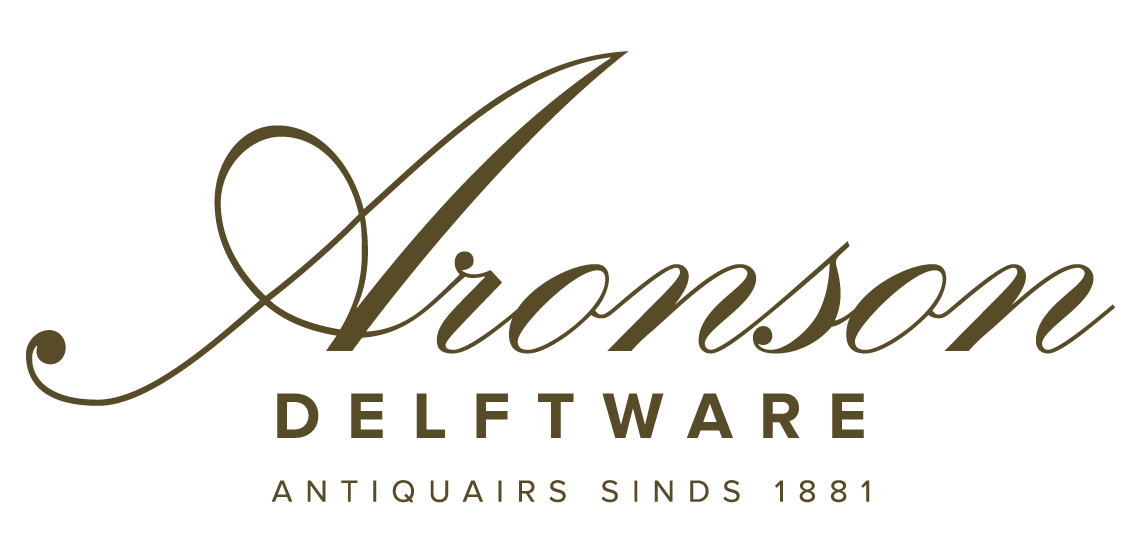
[popup_trigger id=”13756″ tag=”span”]![]() [/popup_trigger]
[/popup_trigger]
Images on this website are licensed under a
Creative Commons Attribution-NoDerivs 3.0 Unported License.

OBJECT
D1901. Majolica Polychrome Porringer
Haarlem, circa 1625
Attributed to the workshop of Verstraeten
The center of the interior painted in blue with stylistic scroll motifs within a yellow band between blue concentric lines below a zigzag line, and the lead-glazed exterior affixed with two scalloped flat handles at the blue dashed yellow rim that are pierced in the center with a roundel surrounded by blue scrolls and whorls.
Diameter: 22 cm. (8.7 in.)
Provenance: The R.J. Bois Collection, North-Holland
Note: One of the most renowned Dutch families to produce wares in the maiolica (or majolica) tradition was the Verstraeten family from Haarlem, especially the father and son Willem and Gerrit. The elder Verstraeten was making the old-fashioned majolica and the son ventured into the more modern faience. Many excavated objects from Haarlem showing the same type of decoration are automatically attributed to Willem Jansz. Verstraeten, however there is still some uncertainty about their provenance because of slight differences in the decoration, molding and glazing. The present porringer however can be attributed to the Verstraeten workshop with certainty. Not only because of its stylized characteristics, but also since it was excavated in the cesspool of one of the family’s houses in the 1970s. As described by Helga Danner, “The real estate of the family Verstraeten” in Baart 2008, this house with a garden, located on the Blekerstraat, was bought by his son Gijsbert in 1655. Gijsbert, who in the same year also had bought a pottery on the Bakkenessergracht with the name De Gecroonde Keijser (The Crowned Emperor), sold in 1656 his real estate and settled in Delft. Both Willem and his sons Gerrit and Gijsbert Verstraeten belonged to the Haarlem dignitaries. They were very well-to-do, judging from the amount of real estate in their possession in the town.
Similar examples: A porringer of this size and shape, but with bird and floral decoration, is illustrated in Aronson 2010, p. 42, no. 20 and one with a cupid decoration in Aronson 2015, p. 12, no. 4. Another one with a cupid decoration and of slightly large size is illustrated in Scholten 1993, p. 95, no. 83.








